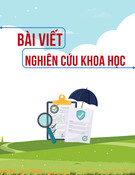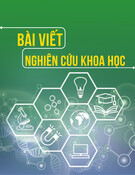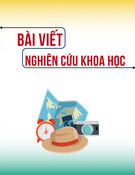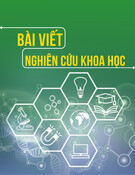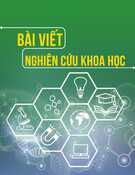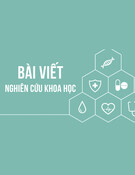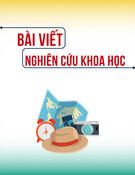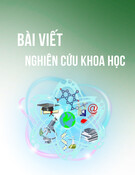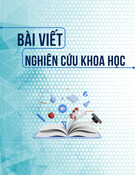Chapter 7
1
Group Versus Team
2
• A group is a large number of people working together because of similarities, yet remain neutral. They interact only to achieve the objective. • A team attempts to establish a positive collaboration among its members. The team encourages each other to excel which creates synergy.
The Formally Appointed Team
• Has a appointed team leader. • The team leader may have more decision making authority than others.
• Power may be delegated to
them.
3
• Delegation is when one gives a portion of their responsibility and authority to a subordinate.
The Informally Appointed Team
• Evolves on its own. • Has a rotation of
leadership.
• The group leader does not have formal power over the group.
4
• The informally appointed team has some advantages over the formally appointed.
The Informally Appointed Team: Advantages • One person probably does not
possess every quality needed to be the perfect leader. • Everyone has a chance. • Formally appointed team leaders may also lose popularity among the group because of their connection with management. • In a informal team, eventually
5
everyone is linked with management.
Why do people join teams?
• To accomplish tasks as
efficiently and swiftly as possible.
• To feel like they are part of a
whole.
• To feel like they contribute something to the overall success of the team.
6
• To develop, enhance, and/or confirm some underlying identity needs.
Teamwork
• The actual action that a team
performs.
• Cooperative effort by a group of persons acting together as a team.
7
• Team players are individuals that participate in a collective effort and cooperation to get the job done efficiently.
Norms
• Team norms are defined as implicit, in addition to explicit rules of behavior. • Norms occur within every type of team
interaction.
• Norms work best when the team
creates them.
• Positive team norms are behaviors that are agreed upon and accepted within the group.
• One way a manager may increase
8
positive team norms in the hospitality industry is by giving rewards.
A Cohesive Team
• Communicates well with each other and has well defined norms, unity, respect, and trust among its members.
• Strengths and weaknesses;
hopefully what one member lacks another will make up for.
9
• If a team lacks cohesion, the group will not have any sense of unity which will result in a hindered performance.
3 Ways to Influence an Informal Team:
• Feed Back: The type
(positive or negative) and amount should even itself off, or meet in the middle. • Identification: Identify the key players within the group.
10
• Communication: Builds
trust, and helps to confirm that you are addressing the right issues.
Before Building a Team
• First consider what they want out of the team they are about to build and clarify these goals to pre existing members .
• Be very selective with who is hired, and always conduct a reference check!
• Remember that one team member’s problem affects the whole group in a downward spiral.
11
• Build a positive work environment.
Formal versus Informal Groups
• Formal groups are
12
work groups established by the company. They include committees, group meetings, work teams and task forces. • Informal groups are more social and form naturally in the workplace.
Changing a Group into a Team
• Get the teams input
toward establishing team goals.
• Allow some team decisionmaking.
• Stress communication
within the team. • Have collaboration
13
among team members.
A Successful Team
• Understands and is committed to the
vision, mission, and goals of the company. • Is mature. • Works to continually improve how it
operates and meets or exceeds its goals.
• Treat each other with respect. • Differences are handled in a professional
manner.
• Members are consulted and their input
is requested in decisionmaking. • Members encourage and assist other
team members to succeed.
14
• Has Synergy.
Total Quality Management (TQM)
• Goal is to ensure
continuous quality improvement of services and products for guests.
• TQM is applied in all
areas of business at every level.
15
• It consists of 10 steps:
10 Steps to TQM 1. Have excellent leaders as supervisors
and managers.
2. Build and train teams of volunteer associates within each department and later cross departmentally in problem solving.
3. Teams decide on and write down the appropriate levels of guest service and relative weighting for ”their guests”.
4. Set mission, goals, and strategies based on guest expectations.
5. Empower and inspire associates to
reach goals.
16
10 Steps to TQM
6. Identify deficiencies, which are areas where service falls below expectations.
7. Analyze and resolve identified
deficiencies
8. Modify processes to incorporate corrections to improve service to expected levels.
9. Track results – improvements in
service, guest satisfaction, employee satisfaction, cost reduction, and profit.
10. Evaluate and support the process.
17
Types of Empowerment
• Empowerment: ensuring that employees have the skills, knowledge and authority to make decisions that would otherwise be made by management.
• Structured empowerment allows employees to make
decisions within specified limits.
• Flexible empowerment gives employees more scope
18
in making decisions.
Major Team Challenges
• Overcoming negativity.
• Learning how to
delegate (appropriate) responsibilities. • Overcoming high
turnover.
19
• Gaining respect from and within the team.
The Coach
20
• Does not use fear or status as a form of motivation to get the job done.The coach uses positive energy. • Coaches must organize, give moral support, delegate, challenge, and inspire their team members.
A few ways that a manager may learn how to turn into a team coach:
• Have a preshift
meeting.
• Take advantage of
moments that you may be able to use to teach a team member something. • Organize team
activities.
21

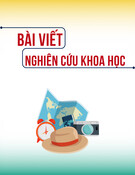
![Đề cương ôn tập Bản đồ du lịch [năm hiện tại]](https://cdn.tailieu.vn/images/document/thumbnail/2025/20250809/dlam2820@gmail.com/135x160/53061754884441.jpg)
